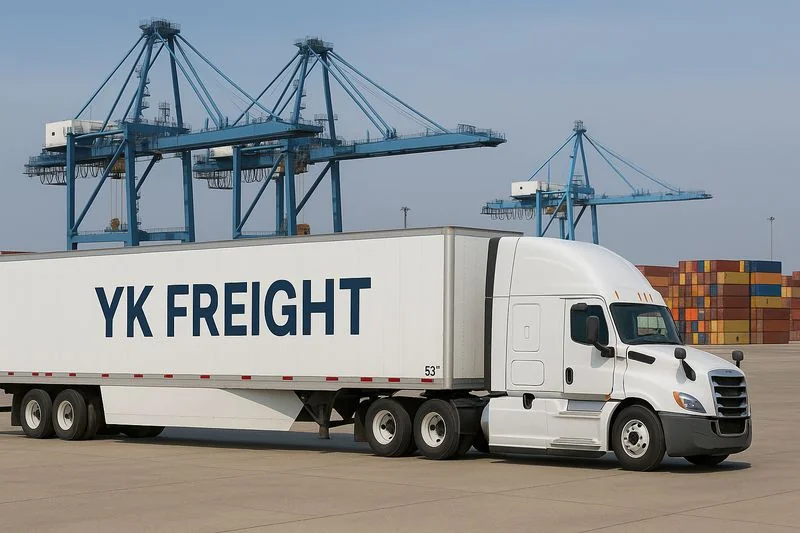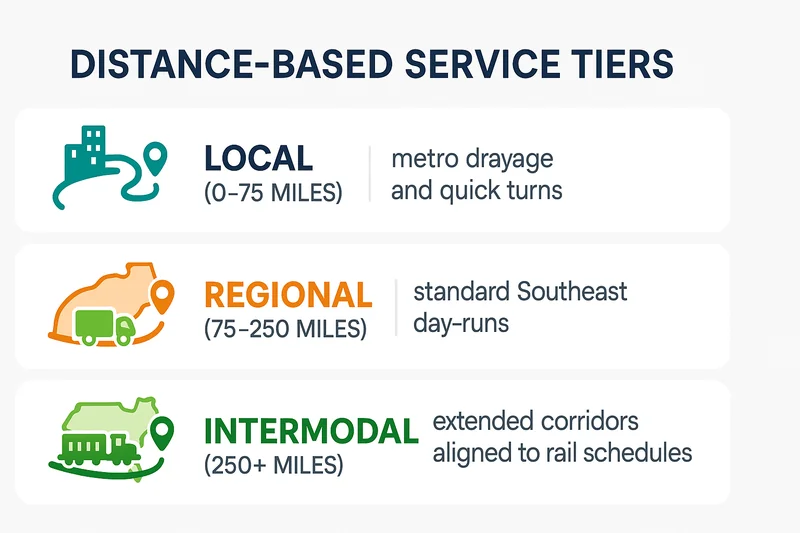YK Freight provides container drayage services across the Southeast with port and intermodal coverage for importers, freight forwarders, NVOCCs, and 3PL partners.
We move containers from major ports and inland rail ramps to distribution centers and warehouses with predictable ETAs, real-time updates, and coordinated returns.

Southeast Drayage Coverage
We operate across the Southeast with a primary focus on Georgia and the Savannah gateway.
Core service corridors include:
- Savannah → Atlanta (GA)
- Savannah → Tennessee
- Savannah → Alabama
- Savannah → South Carolina
For shippers concentrating volume in Georgia, see our dedicated Georgia Drayage coverage.
Port Drayage (Import/Export)
We manage import and export containers with gate-out planning, appointment handling, live load or drop service, and terminal returns.
For shippers using Savannah as their primary port, we coordinate with GPA hours, appointment systems, and return scheduling for efficient container velocity.
Intermodal & Rail Drayage
We support inland routing via Atlanta rail hubs to reach Southeast distribution markets.
Coverage includes:
For inland routings through Atlanta, see Atlanta Intermodal Drayage.
Distance-Based Service Tiers
- Local (0–75 miles): metro drayage and quick turns
- Regional (75–250 miles): standard Southeast day-runs
- Intermodal (250+ miles): extended corridors aligned to rail schedules
This tier structure improves rate predictability and reduces unplanned accessorials.

How We Operate
- Rate confirmation & container details
- TWIC driver pickup & out-gate timestamp
- Delivery (live unload or drop)
- Terminal return & close-out
All moves include timestamped visibility and POD confirmation.
Pricing Logic
Rates are determined by lane distance, terminal type (port vs rail), appointment windows, chassis/return coordination, and applicable accessorials.
Pricing is transparent and provided upfront for planning.
Why Shippers Choose YK Freight
- TWIC/UIIA/ELD compliance and port/rail experience
- Predictable turn times & container velocity control
- Real-time dispatch visibility and POD tracking
- Owned/controlled chassis capacity (where available)
- Flexible live/drop options with coordinated returns
FAQs
Q: Do you handle both imports and exports?
A: Yes — we plan gate-outs, appointments, and return timing for both import and export containers.
Q: Can you drop containers for off-hours unloading?
A: Yes, drop & hook options are available when site policies allow.
Q: What’s your average Savannah → Atlanta turn time?
A: Same-day or next-day depending on terminal windows and receiver scheduling.
Q: Do you cover other Southeast states?
A: Yes — we also serve Tennessee, Alabama, and South Carolina lanes via Savannah
ASK YOUR QUESTIONS